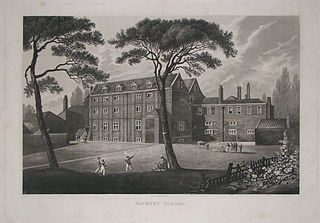Related Research Articles
These are Oxford poetry anthologies of English poetry, which select from a given period. See also The Oxford Book of Twentieth Century English Verse and Eighteenth century women poets: an Oxford anthology.
Several anthologies of religious poetry have been published by Oxford University Press.
This article is about the particular significance of the year 1901 to Wales and its people.
This article is about the particular significance of the year 1899 to Wales and its people.
This article is about the particular significance of the year 1861 to Wales and its people.
This article is about the particular significance of the year 1864 to Wales and its people.
This article is about the particular significance of the decade 1700–1709 to Wales and its people.
This article is about the particular significance of the century 1601–1700 to Wales and its people.
The High Sheriff of Londonderry City, or High Sheriff of Derry, is the sovereign's judicial representative in the city of Derry. High Sheriff of Londonderry is a title and position which was created in 1900 under the Local Government (Ireland) Act 1898, with Sir John Barre Johnson the first holder. Like other high sheriff positions, it is largely a ceremonial post today. The appointment is officially made by the Secretary of State for Northern Ireland on behalf of the King. The outgoing high sheriff nominates his or her successor, except in Belfast where councillors nominate a serving member of the city council. Prior to 1900 sheriffs, initially two per year, but later only one, were elected by the city council.
Sheriff of Dublin City was a judicial and administrative role in Ireland. Initially, the Sovereign's judicial representative in Dublin, the role was later held by two individuals and concerned with a mix of judicial, political and administrative functions. In origins, an office for a lifetime, assigned by the Sovereign, the Sheriff became an annual appointment following the Provisions of Oxford in 1258.

Newcome's School was a fashionable boys' school in Hackney, then to the east of London, founded in the early 18th century. A number of prominent Whig families sent their sons there. The school closed in 1815, and the buildings were gutted in 1820. In 1825 the London Orphan Asylum opened on the site. Today the Clapton Girls' Academy is located here.
This article is about the particular significance of the year 1710 to Wales and its people.
References
- ↑ "Dictionary Editors". Oxford English Dictionary . Retrieved 6 March 2017.; "Dictionary milestones in reverse order". Oxford English Dictionary . Retrieved 6 March 2017.
- 1 2 3 4 5 6 Dirda, Michael (11 October 2023). "The most influential crowdsourcing project happened long before Wikipedia". Washington Post.
- ↑ Hay, Daisy (19 October 2023). "Rare, Obsolete, New, Peculiar". London Review of Books.
- ↑ Keane, Erin (22 October 2023). "Before Wikipedia, there was the Oxford English Dictionary". Salon.
- ↑ Duncan, Dennis (13 October 2023). "In the Beginning Were the Word Nerds". The New York Times.